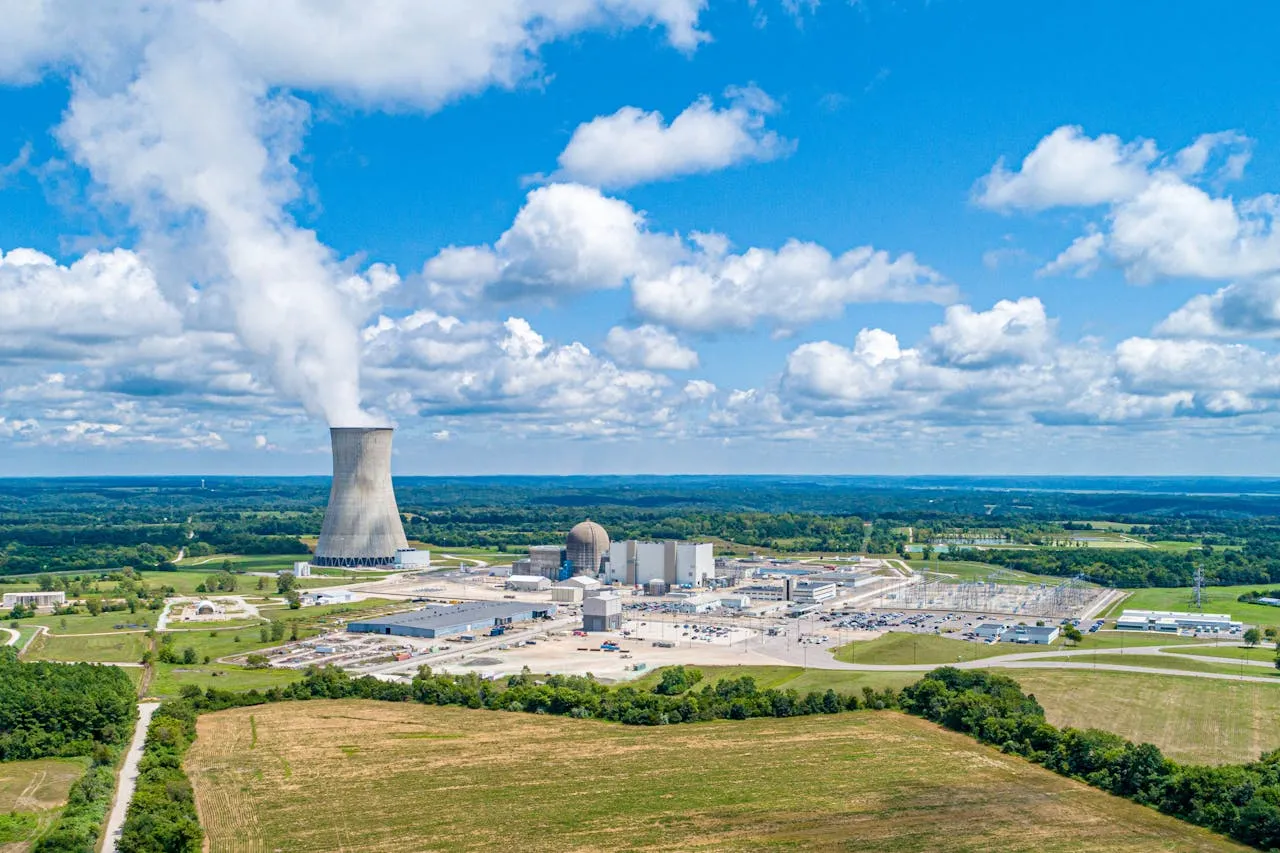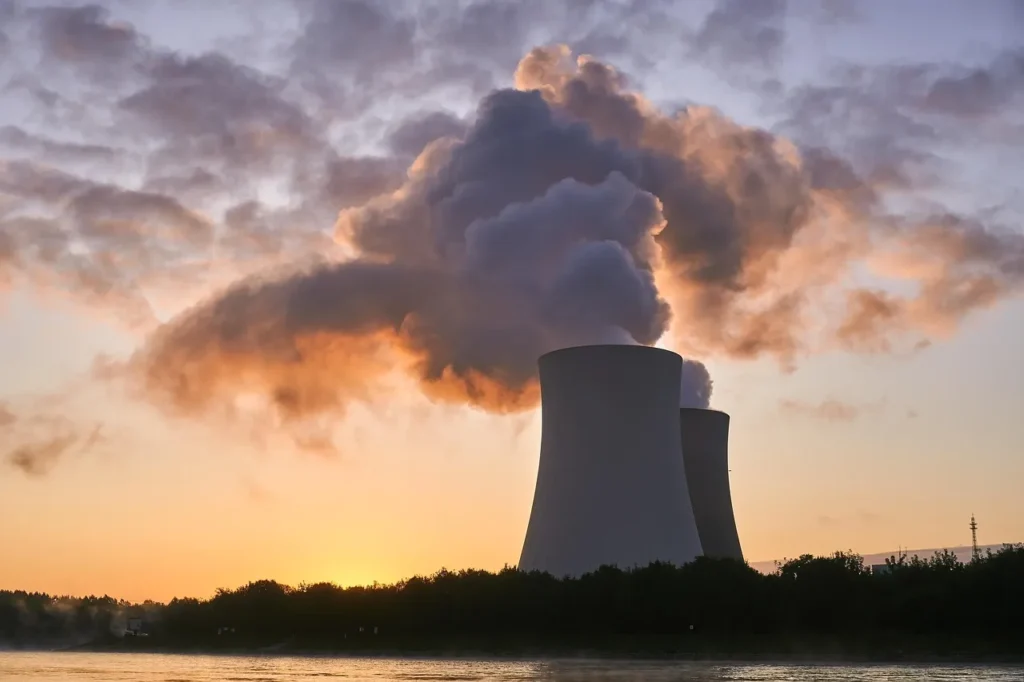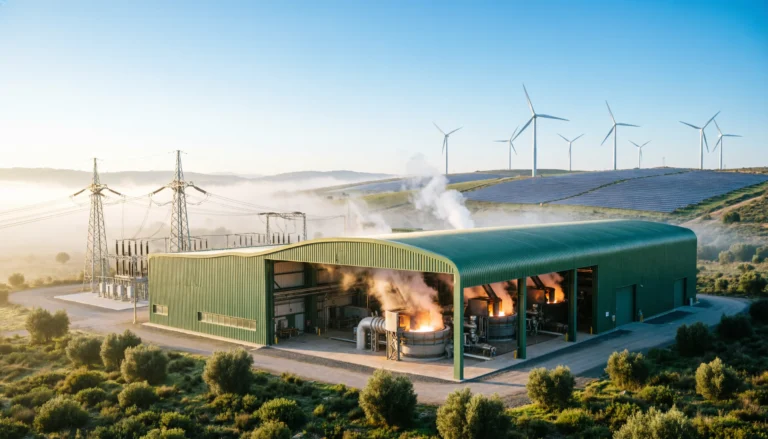
Duke Energy’s Oconee Nuclear Station Receives License Renewal for Continued Operation Until 2054
The U.S. Nuclear Regulatory Commission (NRC) has granted Duke Energy a significant approval, renewing the operating licenses for its Oconee Nuclear Station for an additional 20 years. Located in Seneca, South Carolina, the Oconee facility is now authorized to operate until 2053 and 2054, marking a major milestone in Duke Energy’s efforts to provide clean, reliable, and affordable energy. This extension is a pivotal part of Duke Energy’s broader strategy to address growing regional electricity demands while maintaining energy reliability and affordability for its customers.
As part of Duke Energy’s “all of the above” energy strategy, which includes a mix of renewable, nuclear, and natural gas sources, nuclear power remains a core component of its generation portfolio. Nuclear energy is critical for ensuring that power is available consistently, 24 hours a day, without interruption. With Oconee’s license renewal, the plant will continue to contribute substantially to the company’s clean energy production and its long-term sustainability goals.
The Importance of Nuclear Power in South Carolina’s Energy Future
South Carolina Governor Henry McMaster praised the NRC’s decision, emphasizing the vital role that nuclear energy plays in supporting the state’s economic prosperity and energy security. “Affordable and reliable energy is the key to South Carolina’s continued economic prosperity, and nuclear power must play a key role as we work to shape our energy future,” said McMaster. “The approval to extend Oconee Nuclear Station’s operations for another 20 years is a critical step in ensuring South Carolina’s energy generation keeps pace with our rapid development.”
Oconee is the first of Duke Energy’s nuclear facilities to achieve this significant milestone, extending its license to operate for a total of 80 years. The company is also working towards securing similar renewals for its other nuclear plants, with plans to submit a license renewal application for the Robinson Nuclear Plant in Hartsville, South Carolina, in April of this year.
Enhancing Safety and Reliability Through Ongoing Investment
Safety and reliability are at the heart of Duke Energy’s operations, particularly when it comes to its nuclear plants. The company has invested heavily in modernizing and upgrading equipment at Oconee to ensure that it can continue operating safely through the middle of this century. These upgrades include replacing key components such as reactor vessel heads, steam generators, turbines, transformers, pumps, valves, and other critical infrastructure. Such improvements are essential for extending the plant’s operational life and maintaining its efficiency.
In 2024, Duke Energy added a combined 45 megawatts of power at Oconee through power uprate improvement projects. These projects were designed to enhance the plant’s capacity and provide more electricity to meet the growing needs of the surrounding region. Duke Energy’s commitment to ensuring that Oconee operates at its highest possible capacity while maintaining the highest safety standards reflects the company’s dedication to delivering reliable, clean energy for decades to come.

The Value of Nuclear Energy for Customers and Communities
Nuclear energy has been a cornerstone of Duke Energy’s electricity generation for more than five decades. In 2024, Duke’s six nuclear plants collectively supplied over 50% of the electricity for Carolinas customers and more than 96% of the company’s clean energy. The benefits of nuclear power extend far beyond electricity generation. The operation of these plants creates thousands of well-paying jobs, produces significant economic benefits for local communities, and contributes substantial tax revenue to the surrounding areas.
U.S. Senator Lindsey Graham also voiced his support for the renewal, highlighting the ongoing benefits of Oconee Nuclear Station for both the community and the state. “This is very good news for Duke Energy customers,” said Senator Graham. “The renewal of the nuclear licenses at Oconee will ensure reliable, non-emitting nuclear power continues to be supplied throughout our state. The Oconee nuclear plant is well-run, safe and efficient, and it has been an invaluable employer to Upstate South Carolina. I’m glad it will continue to operate for decades to come.”
Additionally, federal incentives, such as the nuclear production tax credit, further encourage Duke Energy to operate its nuclear plants as efficiently and cost-effectively as possible. This helps lower the cost of nuclear energy for consumers while ensuring that Duke Energy remains a reliable and affordable energy provider.
Duke Energy’s Commitment to Clean and Reliable Energy
Duke Energy recognizes that meeting the growing energy demands of the future requires a balanced and diversified energy portfolio. Nuclear energy will continue to play a crucial role in supporting the company’s efforts to provide clean, reliable energy, particularly as the world shifts toward lower-carbon sources. As the company works to modernize its existing fleet of plants and invest in cleaner technologies, extending the operational life of its nuclear facilities is a vital component of Duke Energy’s broader energy transition strategy.
“Approval to extend Oconee Nuclear Station’s licenses is a significant milestone for Duke Energy and provides significant learnings to use in completing license applications for our other plants,” said Duke Energy’s Chief Nuclear Officer Kelvin Henderson. “As we address growth, modernize the fleet, and invest in cleaner technologies, subsequent license renewal helps ensure nuclear energy continues to be a vital part of Duke Energy’s generation portfolio.”
Understanding Nuclear License Renewals
In the United States, nuclear plants are originally licensed to operate for 40 years. This initial licensing period is based on economic considerations rather than technological limitations. After the initial 40-year license period, plants can apply for a 20-year renewal. This renewal process requires an extensive analysis and evaluation to ensure that the plant can continue to operate safely during the extended period. All of Duke Energy’s nuclear plants have successfully received initial license renewals, extending their operational lives to 60 years. A subsequent license renewal, like the one granted to Oconee, allows plants to operate for up to 80 years.
For Oconee, the timeline looks as follows:
- Original 40-Year License: 1973/1974 – 2013/2014
- First 20-Year License Renewal: 2013/2014 – 2033/2034
- Subsequent 20-Year License Renewal: 2033/2034 – 2053/2054
Duke Energy’s Nuclear Fleet
Duke Energy operates a diverse fleet of nuclear plants across the Carolinas and is committed to ensuring that each facility remains a safe, reliable, and cost-effective source of power for years to come. The company’s nuclear fleet includes the following facilities:
- Brunswick Nuclear Plant – Brunswick County, N.C. – 1,870 MW
- Catawba Nuclear Plant – York County, S.C. – 2,310 MW
- Harris Nuclear Plant – Wake County, N.C. – 964 MW
- McGuire Nuclear Plant – Mecklenburg County, N.C. – 2,316 MW
- Oconee Nuclear Plant – Oconee County, S.C. – 2,554 MW
- Robinson Nuclear Plant – Darlington County, S.C. – 759 MW
The Catawba plant is jointly owned by several partners, including North Carolina Municipal Power Agency Number One, North Carolina Electric Membership Corporation, Piedmont Municipal Power Agency, and Duke Energy.










